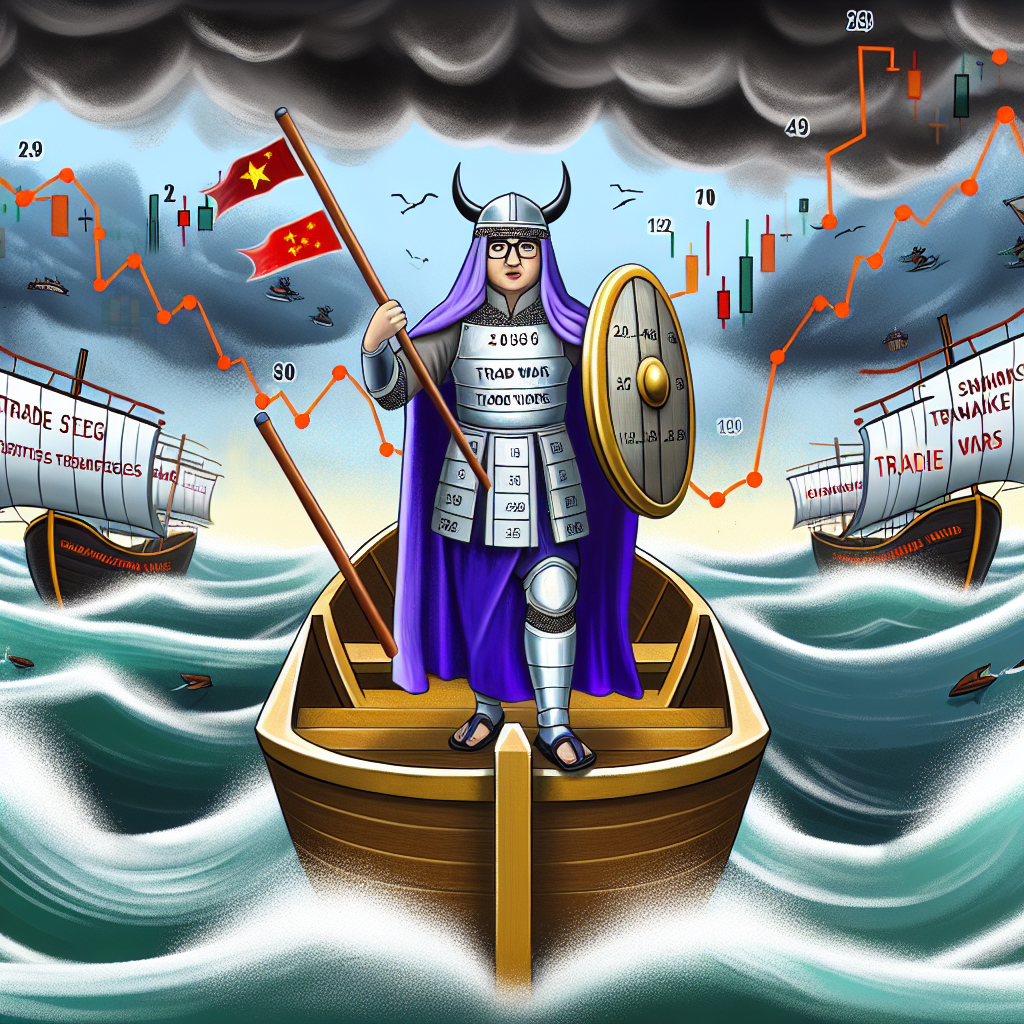Hong Kong’s Hang Seng: Struggling Through Trade Wars
The Hang Seng Index (HSI), Hong Kong’s premier stock market benchmark, has long been a barometer of the region’s economic health and investor sentiment. However, in recent years, the index has faced significant headwinds, largely due to escalating global trade tensions. The ongoing trade wars, particularly between the United States and China, have created a challenging environment for Hong Kong’s financial markets, impacting investor confidence and market performance.
Understanding the Hang Seng Index
The Hang Seng Index is composed of the 50 largest companies listed on the Hong Kong Stock Exchange, representing a wide range of sectors including finance, technology, real estate, and consumer goods. As a gateway between China and the rest of the world, Hong Kong’s market is uniquely sensitive to geopolitical and economic developments, especially those involving China and the United States.
Trade Wars: A Catalyst for Market Volatility
Since 2018, the trade war between the US and China has introduced significant uncertainty into global markets. Tariffs, sanctions, and retaliatory measures have disrupted supply chains and dampened trade flows, directly affecting companies listed on the Hang Seng.
- Tariff Impacts: Many Hang Seng-listed companies, particularly in manufacturing and technology, rely heavily on cross-border trade. The imposition of tariffs on Chinese goods by the US led to increased costs and squeezed profit margins.
- Supply Chain Disruptions: Trade restrictions forced companies to rethink their supply chains, often at great expense and operational complexity.
- Investor Sentiment: The uncertainty surrounding trade negotiations caused heightened volatility, with investors frequently pulling back from riskier assets.
Case Study: Tech Giants and Trade Tensions
Technology companies, which form a significant portion of the Hang Seng, have been particularly vulnerable. For example, Tencent Holdings, a major player in social media and gaming, saw its stock price fluctuate in response to US restrictions on Chinese tech firms. Similarly, semiconductor companies faced challenges due to export controls and bans on key components.
According to data from the Hong Kong Stock Exchange, the Hang Seng Index dropped by nearly 15% during the peak periods of trade war escalation in 2019, reflecting the market’s sensitivity to geopolitical risks.
Broader Economic Implications
The trade war’s impact extends beyond individual companies to the broader Hong Kong economy. As a major financial hub, Hong Kong benefits from robust trade flows and investment. However, the trade tensions have led to:
- Reduced Foreign Investment: Investors have become cautious, leading to slower capital inflows.
- Economic Slowdown: Hong Kong’s GDP growth has decelerated, partly due to weakened trade activity.
- Currency Fluctuations: The Hong Kong dollar, pegged to the US dollar, has experienced pressure amid global market volatility.
Government and Market Responses
In response to these challenges, both the Hong Kong government and market participants have taken steps to stabilize the situation. Measures include:
- Monetary Policy Adjustments: The Hong Kong Monetary Authority has maintained liquidity to support market stability.
- Market Diversification: Companies are exploring new markets and supply chains to reduce dependence on US-China trade.
- Regulatory Support: Efforts to enhance Hong Kong’s attractiveness as a financial center continue, including initiatives to attract technology and green finance sectors.
Looking Ahead: Challenges and Opportunities
While the trade war has posed significant challenges, it has also prompted Hong Kong to rethink its economic and financial strategies. The city’s role as a bridge between East and West remains crucial, but adapting to a more fragmented global trade environment will be key.
Investors and companies alike are watching closely how the US-China relationship evolves, as any resolution could provide a much-needed boost to the Hang Seng. Conversely, prolonged tensions may continue to weigh on market performance.
Conclusion
The Hang Seng Index’s struggles amid the US-China trade wars highlight the intricate link between geopolitics and financial markets. Trade tensions have introduced volatility, disrupted supply chains, and dampened investor confidence, all of which have challenged Hong Kong’s market resilience. However, through strategic adjustments and diversification efforts, Hong Kong aims to navigate these turbulent waters. The future of the Hang Seng will depend largely on the trajectory of global trade relations and the city’s ability to adapt to a rapidly changing economic landscape.





